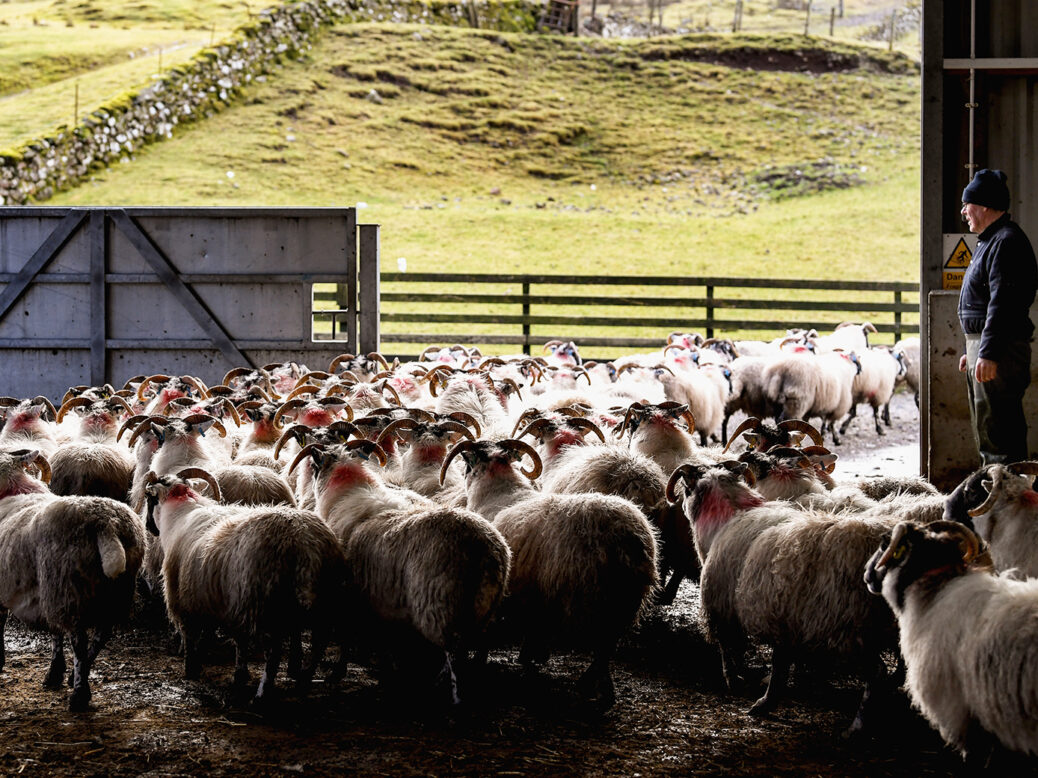
Agri-food policy, so often bubbling away at the political margins, is now taking centre stage. The cost-of-living crisis, the war in Ukraine, obesity, food banks, concerns about national security and Brexit hold-ups at ports all lead to questions about how and what we eat. The response from government to each of these problems is a case study in food policy incompetence.
Support for Brexit drew on years of pillorying EU food policies, but the Tories failed to work out what exactly it wanted after leaving the EU. It is all very well to hope for trade deals with former colonies, but most food and drink imports to the UK come from continental Europe – with 39 per cent of total imports arriving from the Netherlands, Ireland, Germany and France alone. And while the government dreams, self-sufficiency drops: in 2020, 46 per cent of food consumed in the UK was imported.
The Agriculture Act 2020, post-Brexit England’s flagship farming legislation, barely mentions food. EU subsidies worth £3.5bn a year kept British farming afloat. Post-Brexit subsidies will focus solely on environmental land management schemes to allow for the return of nature, not the growing of food.
These changes mean land politics are creeping back, and there are signs the Conservatives may pay an electoral price for that. Owen Paterson’s old North Shropshire constituency fell to the Liberal Democrats last autumn, and it would be no surprise if the former MP Neil Parish’s Devon stronghold goes the same way after his resignation this month. There is rural discontent.
In Thanet, Kent, noisy campaigners are expressing alarm about a giant housing estate: 700 hectares of prime food-growing land will disappear under the foundations of 17,000 houses. Likewise, anyone travelling through the English countryside will notice fields covered by photovoltaic solar panels. These are good for national energy security, but what about food production?
The failure of the government to address Covid’s threat to food security shows that it doesn’t understand food politics. Instead of building more resilience into supply chains, it left market forces and big retailers in charge. The result was a rise in food poverty. Food banks can’t cope with increasing demand from people unable to feed themselves or their families. The Office for National Statistics puts food price inflation at 6 per cent, with the Bank of England now expecting overall inflation to rise above 10 per cent. The campaigner Jack Monroe has reported that the prices of some foods bought primarily by people on low incomes have risen by up to 141 per cent.
If price inflation continues, the tax expert Richard Murphy has calculated, a staggering 15 million households will need an extra £3,000 a year to keep their heads above water. In March, the New Economics Foundation think tank estimated that 23 million Brits will fall below the minimum income standards for a decent quality of life this year. On 9 May, the Food Foundation charity reported a 57 per cent increase since the beginning of the year in UK adults missing meals or cutting back.
The government’s response is simply to monitor the situation. The long-awaited food strategy white paper has still not been published and would not, in any case, be turned into food law. I have been told that the UK Environment Secretary, George Eustice, disliked the draft paper and said he’d write his own. We wait with bated breath.
The country requires a policy that can manage competing needs; a coordinated transition to a “foundational economy” in which infrastructure is in place to enable everyone to live a decent life. Food is an essential component of this vision. The Tory belief that individuals are solely responsible for their wellbeing is naive. Britain’s food systems currently run against collective interests.
A future of healthier eating that works with nature requires massive changes to how and what we eat. Simply rewilding food-growing land is not the solution, and nor is the government’s simplistic “let markets decide” in the face of increasingly competitive demands for land. Markets need to be reframed and a new coherence worked out – one that is not imposed by the biggest bank balance or out of trade desperation.
Russia’s invasion of Ukraine should be the trigger for this change. The war has turbocharged food price rises. In 2021, two thirds of UK migrant farm labour came from Ukraine. Worker losses mean growers this year are cutting back on the amount of crops they plant. And consumers are finally learning just how fossil fuel-dependent our food system is. Oil needed to make fertilisers has doubled or tripled in price. Oil moves food from fields to depots, then to shop shelves. It also moves us to the shops – not just in the UK, but around the world.
The Labour Party realised the food system’s complexity in the 2007-08 financial crisis that generated the Great Recession. It responded by conducting extensive reviews of food security and produced a wide-ranging policy position called Food 2030, signed off by the then-prime minister Gordon Brown in January 2010. The Tory-Liberal Democrat coalition government that followed promptly threw it away.
Meanwhile, the EU is refusing, despite calls from France and other countries, to use the war as an excuse to ditch its new Farm to Fork Strategy, which is aimed at creating sustainable food security by linking environmental protection, food production, health consumption and employment. Ironically, the UK left the EU just when Brussels produced the radical redirection the former had long demanded of the latter, and which the British government is now refusing to implement itself.
If the Tories were sensible, they would fully and speedily engage politically with the systemic problem of food – by linking inequality, health, ecosystems, jobs and land. A failure to do so could mean the party loses more votes in rural areas, while feeding the country’s growing reliance on cheap, ultra-processed diets and accelerating its obesity-fuelled national health crisis.
[See also: The UK is sleepwalking into a food crisis]




